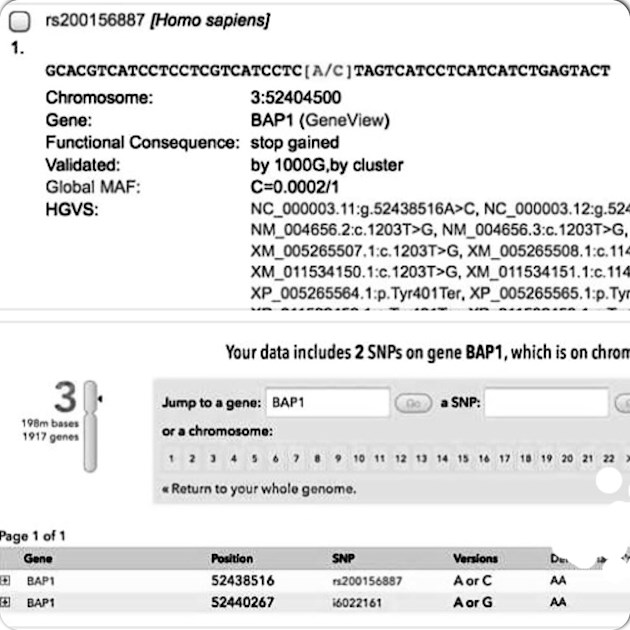Following my private DNA test dose anyone know anything about BAP1 in Genoa Sequencing.
I did DNA test and looked at my BAP1 sequance and My result are at bottom of picture WHERE A,A is indecated.
Top bit of picture is what bap1 sequence should be .. where A,C is.
Given my results DO you think A,A indicates mutation in my Bap1
